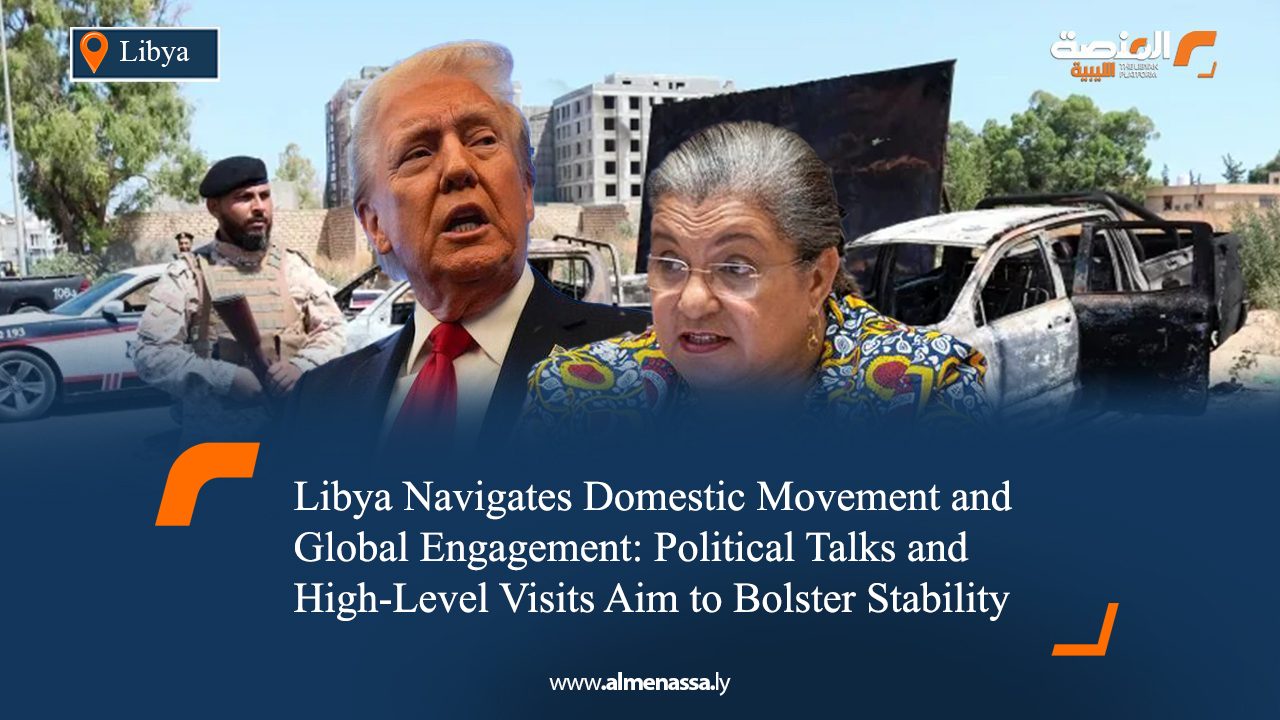Libya has seen an uptick in political momentum both at home and abroad, driven by renewed efforts to bridge divides among rival factions and growing regional and international interest in the country’s political future.
On the domestic front, Mansour Al-Hassadi, a member of the High Council of State, commented on a recent meeting between Council President Khaled Al-Mishri and several candidates for Libya’s new government, calling it a constructive step in the spirit of Libyan–Libyan dialogue.
Al-Hassadi affirmed that all dialogue between Libyans deserves support, describing such efforts as the safest path to resolving crises. He stressed the importance of tolerance and national reconciliation, warning against incitement and divisive rhetoric.
Internationally, Libyans await an upcoming visit from Donald Trump’s advisor, Massad Boulos.
Saad Bin Sharada, also a member of the High Council of State, said the visit was primarily intended to engage with various Libyan stakeholders without leading to direct political action, noting that Boulos would coordinate closely with the UN mission. He cautioned against efforts by certain actors to portray the meetings as exclusive American endorsement.
MP Asmahan Beloun viewed the visit as a sign of renewed U.S. interest in Libya, driven by the country’s vast oil wealth and strategic African location amidst growing competition for influence across the continent.
Beloun added that U.S. priorities in Libya include promoting security, supporting a unified government, and ensuring regional stability. Topics expected to dominate Boulos’s meetings.
On the ground, Tripoli’s mayor, Ibrahim Al-Khalifi, warned of persistent security fragility in the capital, saying current conditions offer little reassurance despite the municipality’s efforts to ease tensions.
He confirmed the formation of a communication group that met with various armed groups in Tripoli in a bid to defuse potential clashes, though no guarantees were provided to prevent future conflict.
Al-Khalifi stressed the importance of dialogue and urged all sides to avoid fighting in the densely populated capital.
Elsewhere, UN envoy Hanna Tetteh continued her official visit to Addis Ababa, where she met with senior African Union officials to coordinate regional efforts concerning Libya.
Discussions focused on the latest developments in Libya, particularly security concerns, challenges to national reconciliation, and irregular migration. Tetteh emphasized the need for unified international and regional backing to propel Libya’s political process forward.
She underscored the value of a Libya-led solution, advocating conditions that would enable national elections and bring an end to political division.
Both sides welcomed last month’s international gathering in Berlin, reaffirming that national reconciliation remains the key to a secure and stable Libya.
These simultaneous internal and external developments reflect the daunting challenges ahead but also highlight tangible opportunities for unity and progress through national dialogue and global support.


